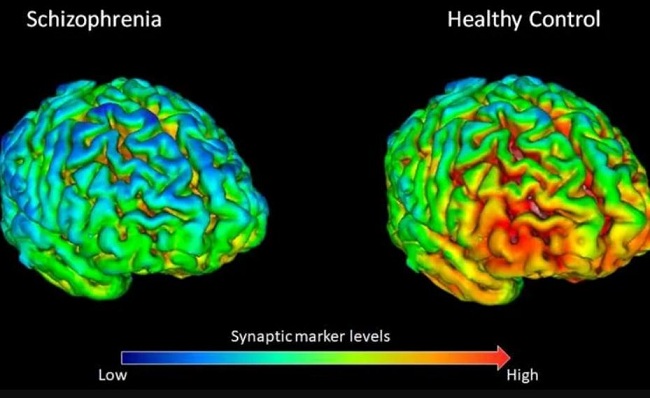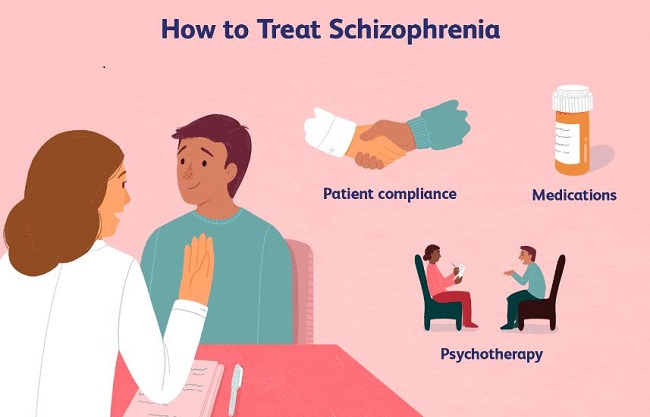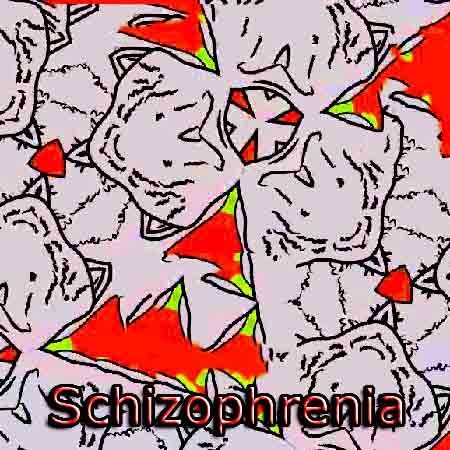11 people in every 1000 people suffer from schizophrenia in the US. A mental disorder, schizophrenia affects the brain of a victim, causing it to shrink due to tissue damage. It has been found that the size of the cranium is much smaller in the case of a patient than the average size.
Though no permanent cure is found yet, the condition can be controlled with the help of therapy and medications. However, the chances of relapse always exist.
Definition of Schizophrenia; How It Differs From Autism? (Schizophrenia vs Autism)
Schizophrenia is a type of mental condition/disorder that affects the thinking capacity of a person, causing him/her to show signs of delusions, hallucinations, difficulty in expressing emotions, and more.
The impact of this condition can lead to a person having difficulties in performing day-to-day functions such as normal social interactions and integrate thought process.
Although schizophrenia shares some of its features with autism, the two disorders are not the same. While autism is mostly related to an individual's sensitivity to external factors, schizophrenia is mostly concerned with the perception of reality.

Comparison between a schizophrenic and healthy mind (©: ZMEScience)
There was a time when doctors were confused between the diagnosis of the two until a scientist named Israel Kolvin highlighted the distinction. Apparently, a high-functioning autistic person can show symptoms of schizophrenia during the situation of anxiety and stress.
Similarly, there is a possibility of a child with autism to develop schizophrenia as they grow older. Further, a person, especially a teenager, can develop psychosis as early signs of schizophrenia.
A patient's life expectancy is reportedly decreased by 10 to 25 than a healthy person. The reduced life expectancy can be caused by various factors like cardiovascular problems or increased rates of suicide.
Common Symptoms Of Schizophrenia
The symptoms of schizophrenia, in most people, can develop gradually with several warning signs. However, in some cases, it can come without any prior signs.
Usually, a series of symptoms can be seen in the person suffering from schizophrenia. Some of the symptoms of schizophrenia are given below:
1) Disoriented Speech or Thinking:- An individual with schizophrenia can have difficulties with coordinating his speech and thought process. This can lead to a deterioration of effective communication of the patient with other people, often leading him/her to speak meaningless words or unrelated answers to questions asked.
2) Poor Motor Skills:- Schizophrenia can lead a patient to lose motor skills, including physical movements, unusual body posture, and more. It can increase the difficulty for the patient to do physical tasks.
3) Frequent or Occasional Hallucinations:- One of the adverse symptoms of schizophrenia is hallucinations. The condition can make people see things that don't exist in real life. While the hallucinations can be in many, hearing strange noises is one of the most common among the victims.
4) Delusions: Delusions are different from hallucinations. A person with schizophrenia can develop beliefs that are non-existent. It can lead a person to have an unreal perception of other people and can also develop paranoia in several cases.
Research On Whether Schizophrenia Is Genetic, Testing/Prognosis
Over the years, billions of dollars have been spent on the research of schizophrenia and to find out whether the condition is genetic. Though researchers have not been able to answer the question with certainty, it is believed that genetics can't alone cause a person to become schizophrenic.
After multiple types of research, doctors have found out that the chances of an individual developing the disorder rises by 10% if any member of the family- including brother, parent, or sister- has it.
Similarly, the possibility rises up by 40% if both the parents of the person are schizophrenic. Meanwhile, a person has the highest chances (50%) of having the condition if his/her twin has the condition.
For testing whether an individual has the condition or not, doctors first identify the history of the condition in the family. Secondly, various tests, including MRI and CT Scan, are undertaken to determine the condition inside the brain. Additionally, doctors also test blood and alcohol levels to determine if any drugs are responsible for the symptoms.
Further, doctors also take several interviews and sessions with the patient to determine the genuineness of the disorder in the person.
Treatment Of Schizophrenia: Therapy, Drugs - How Much Does Schizophrenia Medication Costs?
While there are no known ways to prevent or cure schizophrenia, it can be treated to a level where the patient can lead an ordinary life.

Ways of treatment of schizophrenia (©: Focusdfw)
There are various methods to treat the disorder, among which the two below are the most successful ways of treatment.
1) Therapy:- For the treatment of schizophrenia, a person must undergo therapy for an extended period. A therapist can take different approaches to treat the patient, depending on the condition of the person. A therapist may choose to take the session individually with the patient or in a group. Similarly, the therapist can also teach a schizophrenic person to deal with hallucinations, delusions, motor skills, social adaptability, and more.
2) Medication/Drugs:- Though no drug or medication can completely eradicate the condition, there are several medicines available in the market that can help in the treatment of schizophrenia called antipsychotic drugs. Some of the easily available drugs/medications include Seroquel, Abilify, Risperdal, Zyprexa, Clozapine, Invega, Haldol Tablet, Olanzapine, Fanapt, and more.
However, the treatment of schizophrenia doesn't come cheap.
A survey among 3321 patients conducted in 2000 concluded that a person was bound to spend at an average of $25,940 annually for the treatment of the condition. The costs of these treatments have further gone way high in the last two decades.
What To Do In Case Of Relapse?
Despite the availability of treatments, a relapse can always occur in the case of schizophrenia. In fact, there are only about 10-20% of cases where relapse didn't happen.
Relapse mainly occurs in the case of the discontinuation of medications or therapy. To avoid relapse, a patient must always take the prescribed medicines or therapy sessions.
Similarly, the use of addictive drugs or alcohol should be avoided at all points. In case, the aforesaid techniques don't help with the relapse, immediately consult a doctor.
•Though coping is not easy, if you are struggling with schizophrenia, you can contact the NAMI helpline at 1-800-950-NAMI (6264).

